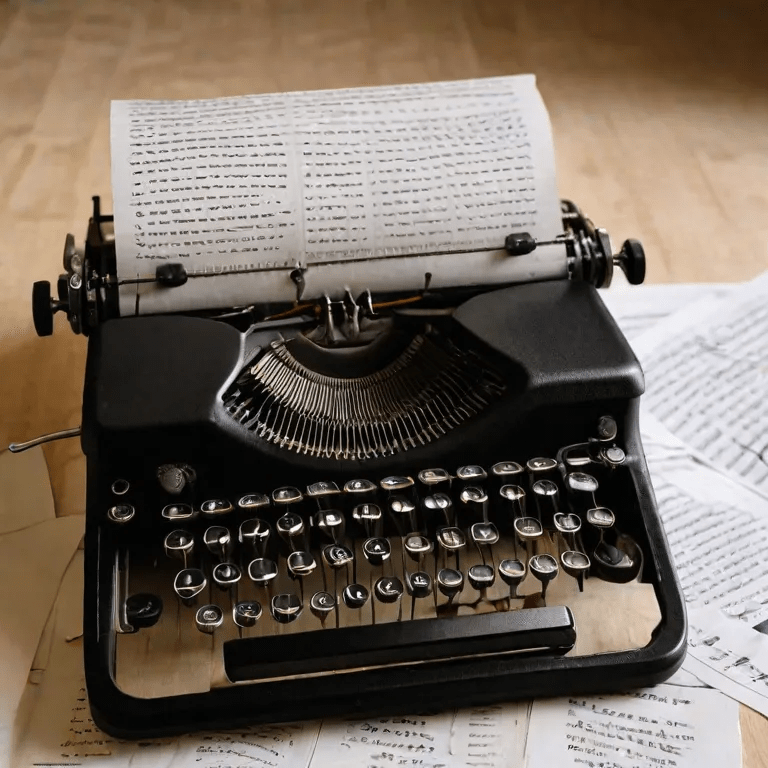
The practice of authors reading and commenting on other authors’ work is complicated, with both considerable advantages and potential disadvantages. It can foster creativity, build community, increase critical thinking, and influence the evolution of literature. It can also cause unconscious mimicry, negative comparisons, time constraints, and difficulty maintaining objectivity.
Fostering Creativity and Inspiration
One of the most significant advantages of authors reading each other’s work is the opportunity for inspiration.
Creativity thrives in environments where ideas are exchanged, challenged, and expanded upon. When authors engage with the writing of others, they expose themselves to different styles, perspectives, and storytelling techniques. This can spark new ideas, fuel their imagination, and lead to innovative approaches in their own writing.
For instance, many writers have acknowledged how reading the works of others has helped them overcome writer’s block or pushed them to explore genres and themes they hadn’t considered before. Authors like Haruki Murakami and Stephen King have cited their extensive reading habits as crucial to their creative processes, illustrating how the cross-pollination of ideas can result in richer, more diverse literature.
Building a Sense of Community
Literature can often be a solitary pursuit, with writers spending long hours alone with their thoughts and manuscripts. However, when authors engage with the work of their peers, it fosters a sense of community. By reading and commenting on each other’s work, writers can build connections that provide support, encouragement, and a sense of belonging in what can otherwise be an isolating profession.
This sense of community is particularly evident in writing groups and workshops, where authors regularly read and critique each other’s work. These environments not only offer valuable feedback, but also create a space where writers can learn from one another’s experiences, share their challenges, and celebrate their successes.
Enhancing Critical Thinking and Analytical Skills
When authors read with a critical eye, they hone their analytical skills. Dissecting how another writer constructs a narrative, develops characters, or employs language can lead to a deeper understanding of the craft of writing. This process of critical engagement allows authors to recognize what works well in a piece of writing and what doesn’t, which can, in turn, inform and improve their own work.
Moreover, by commenting on other authors’ work, writers practice articulating their thoughts about literature. This exercise can sharpen their ability to analyze not only the work of others but also their own writing, leading to more self-awareness and a more refined approach to their craft.
Contributing to the Evolution of Literature
Literature does not exist in a vacuum; it evolves through dialogue and interaction. When authors read and comment on each other’s work, they contribute to this ongoing conversation, pushing the boundaries of the art form. Constructive criticism, in particular, plays a vital role in this process. By offering thoughtful feedback, authors can help each other grow, refine their voices, and challenge the status quo.
This exchange of ideas is crucial for the evolution of literary trends and movements. Historically, many literary movements, such as the Beat Generation or the Harlem Renaissance, were born out of close-knit communities of writers who read, critiqued, and inspired one another. These movements reshaped the literary landscape and had a lasting impact on culture and society.
Expanding One’s Audience and Network
Another practical benefit of engaging with other authors’ work is the potential to expand one’s audience and professional network. When authors actively participate in literary communities, whether online or in person, they increase their visibility and create opportunities for collaboration.
For example, an author who frequently reads and comments on the work of others in a writing community might find that their own work receives more attention in return. Additionally, these interactions can lead to invitations to contribute to anthologies, participate in readings, or collaborate on projects, all of which can help an author build their career.
The Drawbacks
Risk of Unconscious Imitation
While exposure to other writers’ work can be inspiring, it also carries the risk of unconscious imitation. Authors may inadvertently adopt the style, tone, or themes of the writers they admire, which can dilute their own unique voice. This phenomenon, known as “influence anxiety,” can be particularly problematic for emerging writers who are still in the process of developing their distinctive style.
The danger of imitation is not just limited to style; it can also affect content. Authors might find themselves gravitating towards similar plot structures, character archetypes, or thematic explorations as those they have recently read, leading to a lack of originality in their work. This concern is heightened in genres with strong conventions, where the line between inspiration and imitation can be especially thin.
The Potential for Negative Comparisons and Self-Doubt
Reading the work of others can sometimes lead to negative comparisons and self-doubt. Authors, particularly those who are just starting out or who are struggling with their current projects, might find themselves discouraged when they read the polished work of more experienced or successful peers. This can lead to feelings of inadequacy and imposter syndrome, where writers question their abilities and the worth of their work.
These negative emotions can be exacerbated in the age of social media, where authors are constantly exposed to the achievements and accolades of others. The pressure to measure up can stifle creativity and create a toxic environment where writers feel more compelled to compete than to create.
Time Constraints and Distractions
Writing is a time-consuming process that requires focus and discipline. Engaging with the work of other authors, whether by reading extensively or participating in discussions, can be time-consuming. For authors with busy schedules, the time spent reading and commenting on others’ work might detract from their own writing.
Moreover, the mental energy required to engage critically with another’s work can sometimes lead to burnout or distraction. Authors might find themselves so absorbed in the analysis of others’ writing that they lose sight of their own projects or struggle to switch back into a creative mindset.
The Pitfalls of Negative Criticism
While constructive criticism can be beneficial, negative criticism can be damaging. Authors who offer feedback on others’ work must navigate the delicate balance between honesty and sensitivity. A poorly worded critique or harsh judgment can strain relationships within literary communities and discourage writers from continuing their work.
On the flip side, authors on the receiving end of criticism must be prepared to handle it constructively. Not all feedback is helpful, and some may even be misguided or malicious. Learning to discern between valuable criticism and unwarranted negativity is crucial but challenging, especially for writers who are emotionally invested in their work.
The Challenge of Objectivity
Maintaining objectivity when reading and commenting on the work of peers can be difficult. Personal relationships, biases, and preferences can all influence how an author perceives another’s work. This subjectivity can lead to biased feedback that is more reflective of the critic’s tastes and experiences than the merits of the work itself.
Additionally, authors might feel pressured to offer overly positive or diplomatic feedback to avoid offending their peers, which can undermine the effectiveness of their comments. Conversely, the fear of receiving biased or insincere feedback might deter some authors from sharing their work with others, limiting their opportunities for growth.
Ultimately, the decision to engage with other authors’ work is personal. Authors must consider the potential benefits and drawbacks to choose what works best for their specific creative processes. For many, the goal is to strike a balance and embrace the great aspects of literary contact while keeping aware of the hazards. Authors can enrich their own writing while also contributing to the literary community and shaping the future of literature.



